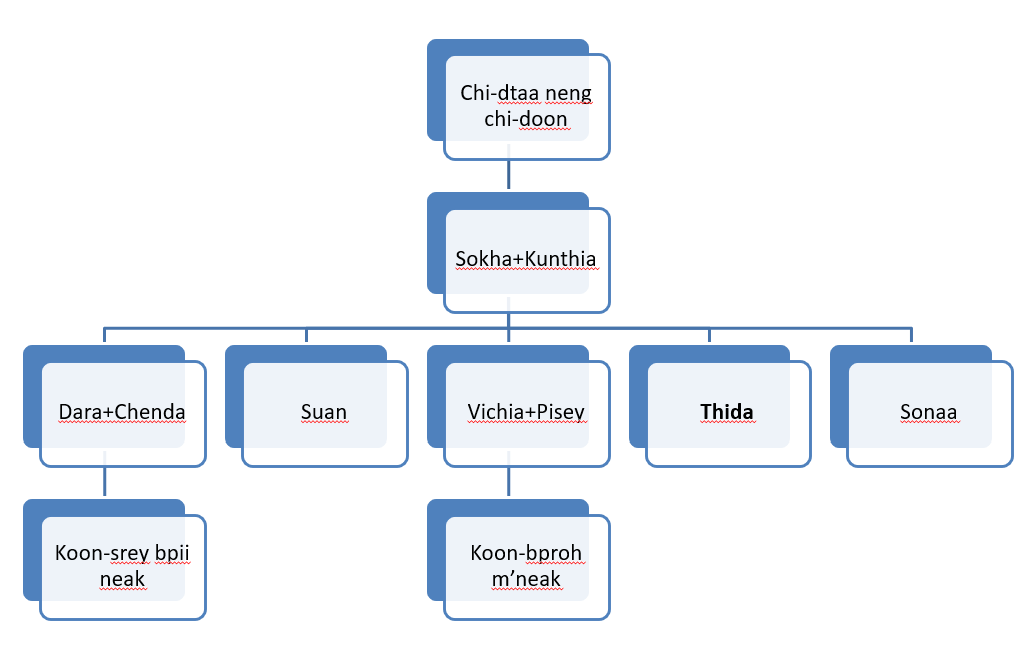3.8 Possessive Adjective and Apostrophe + “s” (‘s)
Possessive Adjectives
The word for “possessive adjectives” is Roo-bɔh. The possessive adjective is frequently omitted in spoken language.
Examples:
- Roo-bɔh Khnhom “my”
- Roo-bɔh koat “his”
- Roo-bɔh yəəng “our”
| Possessive Adjective with Singular Pronouns | Possessive Adjective with Plural Pronouns | ||||
|---|---|---|---|---|---|
| Transliteration | English | Khmer | Transliteration | English | Khmer |
| roo-bɔh khnhom | My | របស់ខ្ញុំ | roo-bɔh neak | Your[1] | របស់អ្នក |
| roo-bɔh neak | Your | របស់អ្នក | roo-bɔh yəəng | Our | របស់យើង |
| roo-bɔh koat | His | របស់គាត់ | roo-bɔh bpuak-koat/bpuak-kee | Their | របស់ពួកគាត់/របស់ពួកគេ |
| roo-bɔh niang | Her | របស់នាង | |||
Apostrophe +”s” (‘s)
The word for “of” is roo-bɔh and possession can be expressed using the pattern: noun+roo-bɔh+ possessor. The word roo-bɔh is frequently omitted in spoken language.
Examples:
- Laan roo-bɔh Thida= Thida’s car
- M’daay roo-bɔh Thida= Sokha’s mother
1. Listening
- Listen to the following passage about Thida’s family. Use the chart below to compare and spot mistakes in the passage.

2. Writing
After listening, rewrite the correct description of Thida’s family and compare with the description below.
The correct description of Thida’s family
3. Reading
Read the correct description of Thida’s family again and then the answer the true-false questions.
- The possessive adjective for second-person plural pronoun is Roo-bɔh neak-taeng-bpii "your". However, when referring to more than two people the second-person plural pronoun is "Roo-bɔh neak-taeng-ah-kina". ↵

